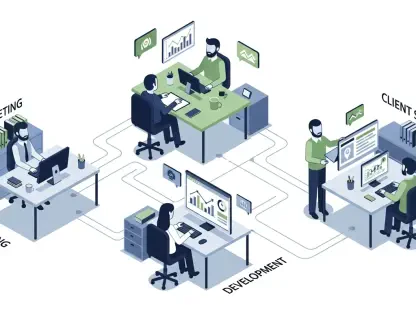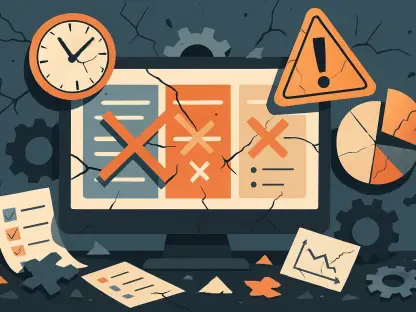Overview of META and the Storage Technology Industry
The storage technology sector stands as a cornerstone of modern logistics and supply chain management, enabling efficient movement and storage of goods across global markets. With the rise of e-commerce and just-in-time delivery models, the demand for advanced storage solutions has surged, pushing companies to innovate in warehouse design, automation, and energy efficiency. This industry plays a vital role in optimizing space utilization and ensuring seamless operations for businesses ranging from retail to manufacturing, making it a critical component of economic stability.
META, based in Arnsberg, Germany, has emerged as a prominent player in this competitive landscape, specializing in storage systems and shelving solutions tailored for industrial needs. The company has built a reputation for quality and adaptability, contributing significantly to the region’s industrial strength. Its strategic location in Arnsberg allows it to serve a wide European market while maintaining a strong local presence, aligning with broader industry goals of efficiency and scalability.
Key segments within storage technology include pallet racking, automated retrieval systems, and modular shelving, with technological advancements like IoT integration and robotics shaping the future. Major competitors in this space focus on similar innovations, creating a dynamic market driven by the need for faster, more sustainable operations. As supply chain pressures mount, META’s initiatives reflect the industry’s shift toward greener practices and smarter logistics, setting the stage for transformative projects that address both operational and environmental challenges.
Details of the Werk 2 Rebuild Project
Project Scope and Timeline
The ambitious rebuild of META’s Werk 2 facility on Westring in Arnsberg marks a significant step in modernizing the company’s infrastructure. Previously known as the Selecta building, this 10,600-square-meter site faced constraints due to low ceiling heights and outdated design, limiting storage capacity and renovation potential. The plan involves the complete demolition of the existing structure, along with a management facility on Lucienstraße in Bruchhausen, to make way for a cutting-edge logistics center spanning approximately 9,000 square meters.
The project timeline is meticulously planned to minimize disruption, beginning with the relocation of stored products to a temporary site on Grabenstraße/Hüttenstraße. Demolition is already underway, with reconstruction scheduled to start in January of the coming year and wrap up by late summer of the following year. Full operational capacity at the new facility is anticipated by early 2027, reflecting a strategic effort to overhaul logistics flow, improve goods receipt and dispatch, and enhance traffic management through rerouted truck access via Westring/Klosfuhrstraße.
The driving force behind this initiative lies in addressing the shortcomings of aging infrastructure that no longer meets modern demands. Limited storage space and renovation challenges necessitated a complete rebuild over patchwork fixes. This project aims to establish a foundation for long-term growth by prioritizing efficiency in every aspect of operations, from spatial design to logistical coordination, ensuring META remains competitive in a fast-evolving sector.
Sustainability and Efficiency Goals
Sustainability anchors the vision for the Werk 2 rebuild, with a clear focus on reducing environmental impact while boosting operational performance. The new facility is designed to meet future-proof storage needs, incorporating advanced processes that streamline workflows and minimize resource waste. Energy efficiency stands at the forefront, with the project targeting compliance with Germany’s KfW Standard 55, a benchmark for high-performance buildings that significantly cuts energy consumption.
Specific measures include the installation of photovoltaic systems across the entire roof to harness solar power, thereby reducing reliance on external energy sources and lowering CO₂ emissions. Additionally, a high-efficiency heat pump will handle both heating and cooling, functioning as an integrated air conditioning system, while direct beam panels will optimize energy use and reduce dust accumulation, creating a healthier workspace. These innovations reflect a holistic approach to building design that prioritizes both employee well-being and ecological responsibility.
Beyond construction, the demolition process itself embraces sustainable practices through a circular economy model. Concrete from the old structure will be crushed and reused in the new build, preserving materials and reducing waste. This symbolic continuity of the former Selecta building into the modern logistics hub underscores META’s commitment to environmental stewardship, ensuring that even the teardown phase contributes to a greener footprint.
Challenges in Modernizing Industrial Facilities
Modernizing a large-scale industrial facility like Werk 2 presents a complex array of challenges, particularly in balancing demolition and reconstruction with uninterrupted operations. Ensuring continuity during the transition is paramount, as any downtime can ripple through supply chains and impact client commitments. The sheer scale of dismantling a sprawling site while planning a new build demands precise coordination to avoid costly delays or logistical bottlenecks.
Outdated infrastructure often complicates such projects, as older buildings may not support modern equipment or energy systems, rendering partial renovations impractical. In this case, the low building height and structural limitations of the original facility ruled out incremental upgrades, necessitating a full rebuild. Moreover, logistical disruptions during the move to a temporary site pose risks to inventory management and delivery schedules, requiring robust contingency plans to maintain service levels.
To address these hurdles, strategic solutions such as temporary storage facilities play a critical role in bridging operational gaps. Phased project execution further mitigates risks by allowing certain functions to continue while others are redeveloped. By adopting these approaches, the project team aims to safeguard productivity and minimize the impact on stakeholders, demonstrating that careful planning can turn modernization challenges into opportunities for improvement.
Commitment to Environmental Standards and Regulations
Germany’s stringent energy efficiency regulations, exemplified by the KfW Standard 55, set a high bar for industrial projects, and META’s Werk 2 rebuild aligns closely with these mandates. This standard emphasizes significant reductions in energy use through advanced building techniques and renewable systems, ensuring that new constructions contribute to national sustainability targets. Compliance is not merely a legal requirement but a strategic choice to enhance long-term operational savings and environmental impact.
Integrating renewable energy solutions, such as extensive photovoltaic arrays and efficient heat pumps, showcases how regulatory frameworks can drive innovation in industrial design. These systems are tailored to meet strict energy benchmarks while supporting a comfortable and functional workplace. Adherence to such standards also positions the facility as a model of sustainable architecture, reflecting a growing recognition within the sector that green practices are integral to future success.
The influence of these regulations extends beyond individual projects, shaping industry-wide trends toward eco-friendly infrastructure. As companies across the storage technology field adopt similar measures, a collective shift emerges, reducing the sector’s carbon footprint and responding to global calls for climate action. This alignment with environmental priorities highlights how policy and business objectives can intersect to foster progress, setting a precedent for others to follow in building responsibly.
Future Outlook for META and Sustainable Logistics
The Werk 2 rebuild positions META at the forefront of sustainable logistics, reinforcing its role as an innovator in storage technology. By prioritizing energy efficiency and modern design, the company not only addresses current operational needs but also anticipates future market demands for greener solutions. This forward-thinking approach is likely to enhance its competitive edge, attracting clients who value sustainability as a core business principle.
Emerging trends in the industry, such as the integration of renewable energy, smart logistics powered by digital tools, and eco-friendly building materials, align closely with the goals of this project. These developments signal a broader transformation within logistics, where technology and environmental consciousness converge to create more resilient systems. META’s investment in these areas could inspire similar initiatives, amplifying the impact of sustainable practices across supply chains.
Looking ahead, the implications of this rebuild extend to shaping consumer expectations and driving growth opportunities. As demand for environmentally responsible operations rises, companies that lead in sustainability may capture larger market shares. The Werk 2 facility stands as a potential catalyst for change, illustrating how strategic investments in green infrastructure can yield both economic and ecological benefits, paving the way for a more sustainable future in logistics.
Conclusion: A Model for Innovation and Responsibility
Reflecting on the journey of the Werk 2 rebuild, it becomes clear that META has set a powerful example of balancing operational excellence with environmental care. The project tackled critical infrastructure challenges head-on, transforming limitations into strengths through innovative design and sustainable practices. It stands as a testament to what thoughtful planning and commitment can achieve in the industrial sector.
Moving forward, the next steps involve leveraging this success to inspire broader adoption of green technologies within the storage technology field. Stakeholders could explore partnerships to scale similar initiatives, focusing on renewable integration and energy-efficient designs as standard practices. Encouraging knowledge sharing among industry peers is also vital to accelerate progress toward sustainability goals.
Ultimately, the focus shifts to sustaining momentum by monitoring the long-term impact of such projects on both business outcomes and ecological footprints. Continuous evaluation and adaptation of strategies ensure that the lessons learned from this endeavor inform future developments. This proactive stance promises to keep sustainability at the heart of industrial modernization, driving lasting change across the landscape.









